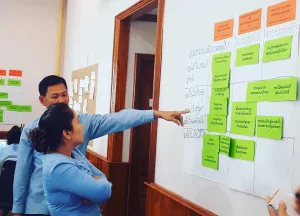The health emergency caused by COVID-19 pandemic has affected all countries in the Latin America and Caribbean region to varying degrees since February. Hygiene −most importantly washing hands with soap and clean water− has been one of the most efficient measures for infection prevention and control.
One of the responses that all governments must therefore provide is to guarantee continuous access to a minimum volume of drinking Water, basic Sanitation and Hygiene (WASH) for all people; in particular, for workers and users of health and nutrition facilities, schools, public places (markets, transport hubs, etc.), and people living outside a home.
In recent weeks, various actors in the sector −governments and decision makers, regulators, utilities, users, etc.− have proposed and implemented different types of measures to tackle the pandemic. This document shares experience and good practices by providing a summary of initiatives implemented in the region to i) ensure that all people have access to safe drinking water, sanitation and hygiene during the emergency; and ii) support and strengthen the role of utilities in continuously and safely providing these basic services. The measures listed are structured and synthesized around two main actors: the user and the service provider. It is important to emphasize that many of the measures require political willpower at the highest level and the committed participation of policy makers and regulators. Intersectoral collaboration is also important in ensuring the correct implementation of many of these measures.






